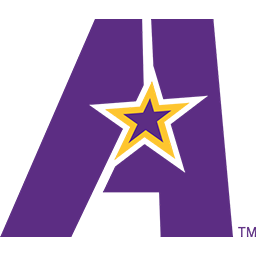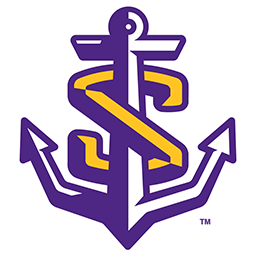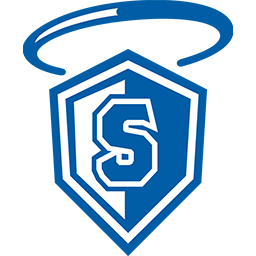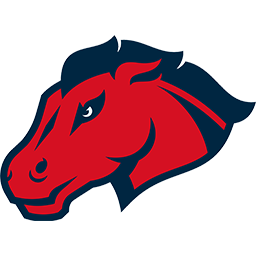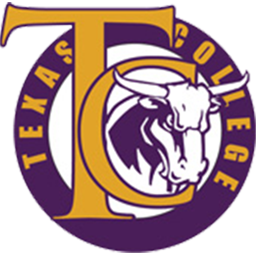Athletic Trainers
RRAC Athletic Trainers Committee
Operating Procedures
July 1, 2025
Mission Statement
The purpose of the Red River Athletic Conference Athletic Trainers’ Committee is to ensure that quality health care is provided to all student-athletes competing in the Red River Athletic Conference (RRAC). All guidelines, policies and procedures, and recommendations from the RRAC Athletic Trainers’ Committee are designed to assist RRAC member institutions in providing a healthy and safe environment for the student-athletes, coaches, administrators, and other individuals affiliated with those institutions.
Committee Membership
- The RRAC Athletic Trainers’ Committee shall include all athletic trainers (head or assistant) affiliated with each of the member institutions.
- The chair of the committee will be appointed by the commissioner of the RRAC.
- The chair shall serve as the liaison between the Athletic Trainers’ Committee and:
- The RRAC Commissioner
- The RRAC Athletic Directors at their annual meetings, if needed
Annual Conference Call/Meeting
- An annual conference call/meeting will be utilized for disseminating information, reviewing/finalizing new guidelines, policies and procedures, and recommendations.
- The commissioner or other representative of the RRAC will be invited to participate in the annual conference call/meeting.
- One member, a volunteer or a member chosen by the chair, will be assigned to record minutes of the conference call/meeting. These minutes will be kept for record and approved at the beginning of every subsequent meeting.
- At the time of the conference call/meeting, contact information for all athletic training staffs at member institutions will be verified as up-to-date and disseminated to all institutions.
New Recommendations
- New recommendations for guidelines, policies, and procedures may be submitted by any committee member to the chairperson.
- New recommendations will be given to all members for review prior to discussion during the annual conference call/meeting.
- New recommendations for guidelines, policies, and procedures will be voted on during the annual conference call/meeting. Each school will receive one vote.
- All recommendations should be approved by all committee members before being passed along, with rationale, to the Athletic Directors for acceptance.
RRAC Athletic Trainer of the Year
- The RRAC Athletic Trainers’ Committee shall vote one member as the RRAC Athletic Trainer of the Year. Each member institution will receive one vote.
- The award will recognize an athletic trainer at an RRAC institution who has distinguished themselves as a model of the profession of athletic training in personal conduct and professional allied health service to the RRAC and the student-athletes, coaches, and administrators of the RRAC.
- Every athletic trainer that works at an institution in the RRAC will be eligible for the award.
- The RRAC Sports Information Director will email a ballot to all member institutions and collect/tally the votes.
- The winner of the award will then be the RRAC nomination for NAIA Athletic Trainer of the Year award.
RRAC Website
- The RRAC Athletic Trainers’ Committee Operating Procedures will be listed on the RRAC website along with contact information for all athletic trainers at member institutions.
Sports Medicine Guidelines
1.0 Responsibilities of Host Institution:
1.1 Have a certified and/or licensed athletic trainer in attendance for all intercollegiate athletic events as required in the section titled Specific Sport Guidelines (4.0). This is a mandatory requirement for the well-being of the student-athletes that participate in contests hosted by Red River Athletic Conference member institutions.
1.2 Develop and implement an emergency action plan for all home athletic events.
1.3 Training Room access should include but not be limited to; table, heat, ice, modalities (ultrasound, e-stim).
1.4 Have injury ice and ice bags readily available at the venue.
1.5 Supply water and cups/water bottles on each bench.
1.6 Provide emergency trauma equipment at the event:
- AED
- Splints
- Crutches
- Biohazard bags
1.7 Provide information that is prudent (i.e. changes to athletic training room availability, change of venue, etc.) in advance to the visiting institution’s athletic training staff.
2.0 Responsibilities of Visiting Institution:
2.1 Supply a medical kit with necessary supplies for their student-athletes with pre-game needs (i.e. taping supplies, wound dressings, over the counter medications, topical ointments, etc.).
2.2 Supply a written request for modalities signed by the athletic trainer or team physician.
NOTE: ATs are asked to provide your list for acute care/treatments in priority order to host AT.
Please be reasonable and considerate with your request of the home institution AT in regards to
what is being asked of them in preparation of the contest.
3.0 Unchallengeable Medical Authority
3.1 On-site certified athletic trainers have the complete authority over the health, safety, and well-being of all competing student-athletes and have the final say in clearing a student-athlete to remain in a contest or return to play after removal due to injury.
3.1.1 If the visiting team’s AT is present, that individual has complete authority over the health, safety and well-being of competing student-athletes from that institution (must be a certified athletic trainer, athletic training students that travel do not have authority over the host certified athletic trainer).
4.0 Specific Sport Guidelines:
4.1 VOLLEYBALL:
4.1.1 Access to an athletic training facility and a certified and/or licensed AT should be made available two hours prior to a match. If more time is needed for treatment of athletes, a request from the visiting institution’s AT should be communicated to the host site AT at least 24 hours prior to the event. Allotting additional treatment time is at the discretion of the host AT. All treatments should be completed 1 hour prior to start of first contest to allow for preparation for match and/or to get to competition venue, if off campus.
4.1.2 If venue is off campus, AT shall leave adequate travel time from campus to be at the competition venue, set up and prepared to see student athletes one hour prior to first game time. ATs reserve the right to adjust and/or not begin treatments that may affect the ability to meet this guideline.
4.2 SOCCER:
4.2.1 Access to an athletic training room and treatment for both men’s and women's teams and certified and/or licensed AT should be made available two hours prior to a game. If more time is needed for treatment of athletes, a request from the visiting institution’s AT should be communicated to the host site AT at least 24 hours prior to the event. Allotting additional treatment time is at the discretion of the host AT. All treatments should be completed one hour prior to start of first contest to allow for preparation for game and/or to get to competition venue, if off campus.
4.2.2 If venue is off campus, AT shall leave adequate travel time from campus to be at the competition venue, set up and prepared to see student athletes one hour prior to first game time. ATs reserve the right to adjust and/or not begin treatments that may affect the ability to meet this guideline.
4.2.3 If games are played as a doubleheader, at half time of the first game an AT should be made available at the competition site for any final taping or pregame needs in preparation for game two. This service may be delayed into the second half if student-athletes from game one need immediate AT services.
4.3 CROSS COUNTRY:
4.3.1 A certified and/or licensed athletic trainer should be made available one hour prior to the meet at the venue.
4.4 BASKETBALL:
4.4.1 Access to an athletic training facility and certified and/or licensed athletic trainer should be made available two hours prior to the first game. If more time is needed for treatment of student-athletes, a request from the visiting institution’s AT should be communicated to the host site AT at least 24 hours prior to the event. Allotting additional treatment time is at the discretion of the host AT.
4.4.2 If games are played as a doubleheader, at half time of the first game an AT should be made available for any final taping and pregame needs in preparation for game two. This service may be delayed into the second half if student-athletes from game one need immediate AT services.
4.5 SOFTBALL/BASEBALL:
4.5.1 Access to an athletic training facility and a certified and/or licensed athletic trainer should be made available two hours prior to start of game unless requested. Some institutions may require extra time for off campus games.
4.5.2 Host AT should communicate to visiting institution available times if off campus venue does not have an athletic training facility available.
4.5.3 Host ATs must be at the competition venue one hour prior to game time.
4.6 GOLF/TENNIS:
4.6.1 Access to an athletic training facility and a certified and/or licensed athletic trainer should be made available upon request. If possible, a certified and/or licensed athletic trainer should remain on site or be within a five-minute response time.
4.7 TRACK AND FIELD:
4.7.1 Access to an athletic training facility and a certified and/or licensed athletic trainer should be made available two hours prior to the start of first scheduled event. If venue is off campus, host AT must be at the competition venue, set up and prepared to see student-athletes one hour prior to first scheduled event. ATs reserve the right to adjust and/or not begin treatments that may affect the ability to meet this guideline.
AED Policy
Every RRAC member institution should have an AED available for all contests hosted on their campus. Access to early defibrillation is essential. Early access to defibrillation can double the chance of survival of cardiac arrest. A goal of less than 3–5 minutes from the time of collapse to delivery of the first shock is strongly recommended.
It is recommended that an Emergency Action Plan (EAP) is in place for the potential use of an AED and that at least one coach from every sport be CPR/AED certified.
Concussion Policy
Each member institution must have a written protocol in place for treating concussed student-athletes and determining return to play.
Protocol for in-game management:
- If a student-athlete is suspected of having suffered a concussion while participating in a RRAC contest, they must be immediately removed from participation and be evaluated by an athletic trainer.
- Any student-athlete that exhibits any sign or symptom of a concussion will be removed from that contest and will not be allowed to return to play that day.
- Athletic trainers have final authority in determining if a student-athlete is fit to return to play.
- If a team is traveling without their athletic trainer, the host athletic trainer has final authority in determining when a student-athlete is fit to return to play.
- If a student-athlete suffers a concussion in an away contest without their athletic trainer present, the host athletic trainer should make every effort to inform the athletic trainer at the injured student-athlete’s institution (via email and/or phone).
- If a student-athlete suffers a concussion in an away contest, they may not return to play until cleared by their institution’s athletic trainer.
- If the student-athlete is traveling to another institution for a contest before returning home, the host athletic trainer should make every effort to inform the athletic trainer at the next institution.
Lightning Policy
Lightning’s behavior is random and unpredictable. Preparedness and a quick response are the best defenses to minimize the lightning hazard.
As severe weather threatens a RRAC athletic contest, the host athletic trainer, host administrator, and game officials should begin to monitor the risk of lightning.
The RRAC recommends that each member institution utilize a lightning detector and/or have a lightning detection system on site at all outdoor events.
In the event that a lightning system/detector is not available, the flash-to-bang method may be used. To use this method, count the seconds from the time lightning is observed to when the clap of thunder is heard. Divide the number of seconds by five to obtain the distance (in miles) the lightning is occurring.
When lightning is detected inside a 30-mile radius of the event, the host athletic trainer and host administrator should notify game officials of impending weather, begin preparations to suspend the contest, and continue to monitor the weather for lightning strikes.
The event will be suspended when lightning has been detected inside of a 10-mile radius when using a system/detector or when the flash-to-bang count is 50 seconds or less. When activity is suspended, it is necessary to direct athletes, coaches, officials, spectators, etc. to safe shelter as quickly as possible.
The host athletic trainer has the final authority to stop a contest due to lightning.
Activity may be resumed 30 minutes after the LAST lightning strike within the 10-mile radius. Each time lightning is detected inside the 10-mile radius, the 30-minute clock should be reset.
Heat and Hydration Break Policy
Temperatures in our region of the country during the intercollegiate soccer season can reach dangerously high levels. In order to help protect against heat related illness, the Red River Athletic Conference Athletic Trainers’ Committee has adopted a policy regarding mandatory hydration breaks during all matches hosted by RRAC member institutions. This policy falls in line with policies adopted by US Soccer, Federation Internationale de Football Association (FIFA) and Major League Soccer (MLS). The policy is as follows:
- The RRAC mandates the use of hydration breaks if the Wet Bulb Globe Temperature (WBGT) is at or above 86 degrees.
- WBGT will be monitored by the preferred method of the host institution’s athletic trainer. Examples: sling psychrometer, handheld electronic device, mobile app, National Weather Service, etc.
- The host institution’s athletic trainer will be responsible for determining WBGT at least 15 minutes prior to the start of the competition. The host institution athletic trainer will then notify the head referee and both coaches that a mandatory hydration break will occur.
- Each break will last four minutes in length and occur at the first stoppage of play after the 22 minute mark in each half.
- For the break to commence, the ball must be out of play.
- The main official will inform both teams of the hydration break and signal the beginning and ending of the break.
The Red River Athletic Trainers’ Committee also recommends the following items to help prevent heat related illness:
- Adopt an acclimatization period. US Soccer recommends 1-5 days of acclimatization.
- Have water and/or sports drinks available at all times. Dehydration is a key factor in heat illness. Encourage student-athletes to avoid energy drinks, soda, coffee, tea and alcohol.
- Take frequent breaks when training. Have a shaded area available for those breaks.
- Immediately seek medical help with shivering, muscle cramps, headache, fatigue or collapse.
- Have a plan for treating a student-athlete suffering from heat illness that may include shaded area, indoor area, cold towels, cool water immersion, etc.
Institutional Responsibilities
- Certified Athletic Trainer (ATC)/ Licensed Athletic Trainer (LAT):
- It is a requirement for the home site to have a certified Athletic Trainer or authorized certified outside service in attendance for all intercollegiate athletic events. It is the home team’s responsibility to provide an Athletic Trainer or training service.
- If a home site fails to have a certified Athletic Trainer or outside service at an event and the visiting team has arrived on site, there will be a forfeit by the home team.
- If a traveling Athletic Trainer crosses state lines, they can provide training for their own athletes but not that of the home team.
- Automated External Defibrillator (AED) Policy:
- Every RRAC member institution should have an AED available for all contests hosted on their campus. Access to early defibrillation is essential. Early access to defibrillation can double the chance of survival of cardiac arrest. A goal of less than 3-5 minutes from the time of collapse to delivery of the first shock is strongly recommended.
- It is recommended that an Emergency Action Plan (EAP) is in place for the potential use of an AED and that at least one coach from every sport be CPR/AED certified.
- Game Day Procedures:
- Emergency medical equipment should be made available by host institution at contests where AT is present:
-
-
- AED
- Vacuum splints
- Crutches
- Biohazard bag
-
- The visiting team shall be responsible for supplying a kit with items needed for pre-game taping, bandaging, padding, etc.
- The visiting team shall be responsible for supplying shower towels.
- Visiting teams traveling without a certified/licensed athletic trainer must provide documentation from their certified/licensed athletic trainer to receive any pre- competition treatment.
-
-
- Contact Host Athletic Trainer at least 48-72 hours in advance to make necessary accommodation/adjustments.
-
Game Day Supplies and Services
The following minimum supplies/services should be made available by the home team at all RRAC contests:
- Baseball
-
- Athletic training room access 2 hour before games begins unless upon request
- 1 10-gallon cooler of water per dugout
- Cups or Bottles
- 1 ice chest with ice bags
- Basketball
-
- Athletic training room access 2 hours before game begins
- 1 10-gallon cooler of water per bench
- Cups or Bottles
- 1 ice chest with ice bags
- Cross-Country
-
- Athletic training room access upon request
- 5 10-gallon coolers of water minimum
- Cups
- 1-2 ice chest with ice bags
- Golf
-
- Athletic training room access upon request
- 1 ice chest with ice bags
- Soccer
-
- Athletic training room access 2 hours before game begins
- 1 10-gallon cooler of water per bench
- Cups or Bottles
- 1 ice chest with ice bags
- Softball
-
- Athletic training room access 2 hour before games begins unless upon request
- 1 10-gallon cooler of water per dugout
- Cups or Bottles
- 1 ice chest with ice bags
- Tennis
-
- Athletic training room access upon request
- 1 10-gallon cooler of water
- Cups or Bottles
- 1 ice chest with ice bags
- Outdoor Track and Field
-
- Athletic training room access 2 hours before competition begins
- 2 10-gallon cooler of water, minimum
- Cups
- 1 ice chest with bags
- Volleyball
- Athletic training room access 2 hours before game begins
- 1 10-gallon cooler of water per bench
- Cups or Bottles
- 1 ice chest with ice bags

